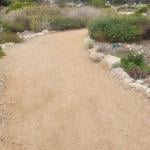Matthew 16:13-20 God’s Desire for Me and My Church
Matthew 16:13-20 God’s Desire for Me and My Church is a sermon from the Book of Matthew about what God wants from me and my church.
“And I also say to you that you are Peter, and on this rock I will build My church, and the forces of Hades will not overpower it.” (Matthew 16:18, HCSB)
Jesus begins this conversation by taking a poll from His disciples. He asks:
“When Jesus came to the region of Caesarea Philippi, He asked His disciples, “Who do people say that the Son of Man is?”” (Matthew 16:13, HCSB)
God desires that I confess Christ as my Master. (Confession of Christ)
Jesus is not a prophet. He is not a politician. He is not a partymaker. He is the Perfect Leader.
“Simon Peter answered, “You are the Messiah, the Son of the living God!”” (Matthew 16:16, HCSB)
God desires that I follow Christ as a member of a local gathering of believers. (Cornerstone of the Church)
“And Jesus responded, “on this rock I will build My church” (Matthew 16:18, HCSB)
A careful reading of the original passage (vv. 18–19) shows the impossibility of such an interpretation. Jesus says “You are Peter [Petros],” that is, “a stone.” Then Jesus adds, “And upon this rock [petra],” that is, a “ledge of rock,” he would build his church. He does not call Peter the rock foundation on which the church is built.
“Coming to Him, a living stone—rejected by men but chosen and valuable to God—”
(1 Peter 2:4, HCSB)
In fact, as Peter himself says in his first epistle (1 Pet. 2:4), Christ is the foundation, on which the living stones of the apostles and believers are built into a spiritual house. Peter certainly knew that he was not the foundation of the church. The Christ whom Peter confessed was and is that foundation.
In the church there is the bond of family, yet room for variety. The devil tries to disrupt unity. Two chickens tied at the legs and thrown over a clothesline may be united, but they do not have unity.
—Leslie Flynn, Great Church Fights
Growing a church isn’t like baking a cake. It isn’t a matter of adding certain ingredients together in the right proportions. Jesus makes it clear in this text that He will BUILD His Church. No doubt He will use our efforts and programs, but He will do the building, not us.
God desires that we as a church push back against the false beliefs and powers of the day.
(Conquering of Death)
“And Jesus responded, “on this rock I will build My church, and the forces of Hades will not overpower it.” (Matthew 16:18, HCSB)
Jesus took His disciples thirty miles away to a place where the local people believed were a gateway to the gods. The Romans had an altar to Pan, the gatekeeper to the Underworld.
The Greek name Peter (Petros) derives from the Greek word for rock (petra). In Aramaic, both Peter’s name and the word for rock are represented by the same word (kepha). The most common interpretations propose that Jesus was referring either to Peter himself or to Peter’s confession of faith (see v. 16). Both options suggest Jesus’ choosing of Peter for leadership among His followers.
A third option is based on the geographical context of the narrative: Caesarea Philippi near Mount Hermon in the region of Bashan. According to this view, “this rock” refers to the location on which Jesus and the disciples were standing—the gateway to the Underworld and the unholy ground given to Baal and Zeus (the respective chief deities in Canaanite and Graeco-Roman religion of the day). If Jesus intended this geographic reference then His statement was one of war: His life-giving Church would do battle against and prevail over the realm of death.
So when Jesus tells Peter that it is “upon this rock I will build my church, and the gates of Hell will not withstand it,” He and the disciples are literally standing at the place known in ancient times as the gates of Hades/the Underworld. Jesus is saying, in other words, that He will conquer the forces of darkness associated with the Underworld—and that the power of the Church will overcome them. In Paul’s words, Christ “disarmed the rulers and authorities and put them to open shame, by triumphing over them” (Col 2:15) and “ascended on high, leading a host of captives, and gave gifts to men” (Eph 4:8). In this latter passage, Paul quotes Psa 68:18, which makes it especially powerful because the mountain God ascends and conquers is none other than Mount Bashan (Psa 68:15).
By saying that the gates of death will not overcome the church, Jesus is saying that the local powers will not overcome the church.
There are people who believe in all kinds of beliefs and powers. They also believe that these powers should coexist. They also want to minimize the Christian faith in the public arena. It is as if people are saying that Christianity is just as important but not more important than every other belief. Because Jesus was making this statement at the gateway to other religions, Jesus is saying to us as His disciples:
Push back!
The world will try to push back at you. You have to learn to push back to the culture. They will try to eliminate Christ. You have to make it clear that you won’t let Christ be downplayed.
I have felt the spiritual war that this creates first-hand. I felt it in France when we were sharing the gospel with children. Muslim kids were on the rooftops getting ready to throw rocks at us.
I felt it when we started the Turning Point. We knew that we were entering into the Gateway of Death. We were reaching out to people who were hooked on gateway drugs. Not just drugs which would lead you to other drugs, but would open you up to Satanic influence.
If you have any doubt that the world is out to push Christ out, look at the news this week. We have people who want to eliminate Christ from the American culture. But more importantly, we have people all over the world who are outraged because an American film depicted the Islam prophet Mohammed as a child molester. As a result, they protested in: Egypt, Tunisia, Libya, Sudan.
You know that these same countries are the ones who will follow the AntiChrist during his attempt to rule the world?
Satan is using these religions as well as spiritual apathy to push against Christ and His church. We have to push back.
TS: How is the best way to push back? We need to increase our efforts in sharing the Gospel.
God desires that we as a church make every effort to share the Gospel.
(Commission of the Gospel)
“I will give you the keys of the kingdom of heaven, and whatever you bind on earth is already bound in heaven, and whatever you loose on earth is already loosed in heaven.”” (Matthew 16:19, HCSB)
What are the keys to the kingdom?
It was this act of confession by Simon which gave Jesus the opportunity to proclaim the foundation of his church. The keys of the kingdom, the power of binding and loosing men from their sins, are given here to Peter (or perhaps the disciples), and later (Matt. 18:18) to all who confess him as Lord.
“I assure you: Whatever you bind on earth is already bound in heaven, and whatever you loose on earth is already loosed in heaven.” (Matthew 18:18, HCSB)
The keys signify the power to proclaim the gospel which liberates men from sin. The rejection of this gospel also leaves men bound in sin, without hope in the world.
I have a question for you. Have we charged Hell lately?
Michael S. Hamilton, Assistant Professor of History at Seattle Pacific University wrote, “In the 1930‘s, most missionary agencies emphasized evangelism, church-planting, and discipleship. In 1998, however, four of the five largest overseas ministries specialized in relief, development, and education work. For many of these agencies, evangelism is a secondary concern.”
If Professor Hamilton is right, the church is drifting from our purpose. We’ve stopped charging Hell with the gospel. Instead, we’re spending our efforts trying to alleviate Hell on earth. We’re charging the wrong Hell. Suffering on earth, “Hell on earth” if you will, isn’t even a drop in the ocean of the suffering that await those who will spend eternity in Hell.
If we don’t feed the poor, someone else will. If we don’t clothe the naked, someone else will, but if we don’t spread the gospel, who will?

















